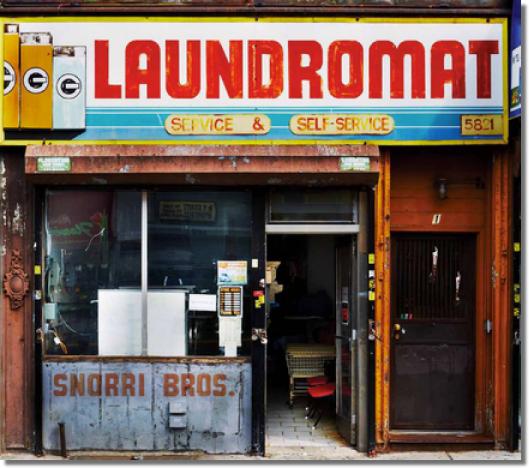 |
|
CHANCE SYNCHRONICITY & MIND-WRITING:
Write About and Old Person and a Laundromat

When Your Greatest Romance Is a Friendship
Modern Love By VICTOR LODATO FEB. 24, 2017 New York Times
“Is this your grandson?” people sometimes ask Austin when she’s out with me.
I love watching her vanity prick up, the way she serenely tilts her small white head and refurbishes her Southern accent to correct them. “No, honey. He’s my friend.”
At this point, folks usually smile tightly and turn away, perhaps worried there is more than friendship going on between the old lady and the younger man seated at the bar or strolling through the supermarket, giggling like teenagers.
Why we’re giggling, I could’t tell you. Often our mirth seems fueled by some deep-celled delight at being together. Friendship, like its flashier cousin, love, can be wildly chemical and, like love, can happen in an instant.
When I met Austin, I was in my early 40s and not looking for a friend. I had come alone to this small Oregon town to finish a book. So when a bony, blue-eyed stranger knocked on my door, introducing herself as the lady from across the way and wondering if I might like to come over and see her garden — maybe have a gin and tonic — I politely declined.
Watching her walk away, though, in her velvet slip-ons and wrinkled blouse, I felt a strange pang, a slow pin of sadness that I suppose could best be described as loneliness. Suddenly I was dashing into the dirt road to say that I was sorry, that she had caught me in the middle of work, but that, yes, I would enjoy seeing her garden.
“Not the gin and tonic?” she said.
“Sure, that too,” I answered, blushing. And before I could suggest a visit the next week, she said: “So I’ll see you in a few hours, then. Shall we say 4:30?”
I had to admire her sense of time. Next week is for someone who can afford to put things off. Austin, in her 80s, surely felt no such luxury. Read more...
Angel's Laundromat
by Lucia Berlin
A tall old Indian in faded Levi's and a fine Zuni belt. His hair white and long, knotted with raspberry yarn at his neck. The strange thing was that for a year of so we were always at Angel's at the same time. But not at the same times. I mean some days I'd go at seven on a Monday or maybe at six thirty on a Friday evening and he would already be there.
Mrs. Amitage had been different, although she was old too. That was in New York at the San Juan Laundry on Fifteenth Street. Puerto ricans. Suds overflowing onto the floor. I was a young mother then and washed diapers on Thursday mornings. She lived alone above me, in 4-C. One morning at the laundry she gave me a key and I took it. She said that if I didn't see her on Thursdays it meant she was dead and would I please go find her body. That was a terrible thing to ask of someone; also then I had to do my laundry on Thursdays.
She died on a Monday and I never went back to the San Juan. The super found her. I don't know how.
For months,at Angel's, the Inidan and I did not speak to each other, but we sat next to each other in connected yellow plastic chair, like at airports. they skidded in the ripped linoleum and the sound hurt your teeth.
He used to sit there sipping Jim Beam, looking at my hands. Not directly, but not the mirror across from us, above the Speed Queen washers. At first it didn't bother me. An old Indian staring at my hands through the dirty mirror, between yellowing IRONING $1.50 A DUZ and orange Day-Glo serenity prayers. GOD GRANT ME THE SERENITY TO ACCEPT THE THINGS I CANNOT CHANGE. But then I began to wonder if he had something about hands. It made me nervous, him watching me smoke and blow my nose, leaf through magazines years old. Lady Bird Johnson going down the rapids.
Finally he got me staring at my hands. I saw him almost grin because he caught me staring at my own hands. For the first time our eyes met in the mirror, beneath DON'T OVERLOAD THE MACHINES.
There was panic in my eyes. I looked into my own eyes and back down at my hands. Horrid age spots, two scars. Un-Indian, nervous, lonely hands. I could see children and men and gardens in my hands.
(The story continues but I have no link to in, being in a book called, "A Manual for Cleaning Women.")

I found no grail. But I did discover the modern tradition. Because modernity is not a poetic school but a lineage, a family dispersed over several continents and which for two centuries has survived many sudden changes and misfortunes: public indifference, isolation, and tribunals in the name of religious, political, academic and sexual orthodoxy. Being a tradition and not a doctrine, it has been able to persist and to change at the same time. This is also why it is so diverse. Each poetic adventure is distinct, and each poet has sown a different plant in the miraculous forest of speaking trees. Yet if the poems are different and each path distinct, what is it that unites these poets? Not an aesthetic but a search.
– Octavio Paz
![]()
